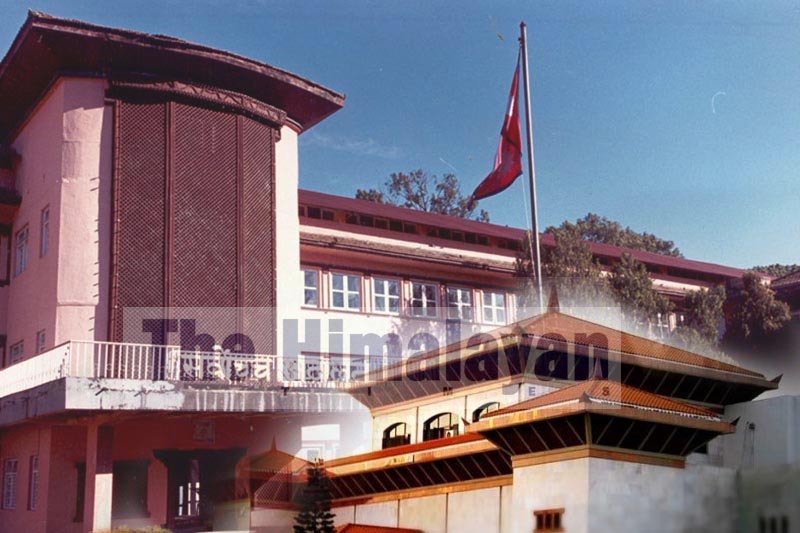PM has no right to dissolve House, SC told
KATHMANDU, JANUARY 17
Lawyers representing the petitioners that have challenged the dissolution of the House of Representatives today began pleading before the constitutional bench of the Supreme Court led by Chief Justice Cholendra Shumsher JB Rana.
Advocate Bhimarjun Acharya said the prime minister had no power to dissolve the HoR and as per the constitutional provision the House could be dissolved only after exhausting all options listed in Article 76 regarding formation of the government.
Acharya countered the prime minister’s argument to invoke Article 85 (1), saying that the article which states that the term of the HoR shall be five years unless dissolved earlier did not give the PM any additional power to dissolve the HoR as claimed by the PM.
Acharya said there were only two conditions under which the HoR could be dissolved — on the expiry of the five-year term of the HoR or when a coalition of parties fails to appoint a PM or the PM appointed by them fails to obtain a vote of confidence.
“This does not mean that the PM can recommend dissolution of HoR at his will,” he argued.
Advocate Sunil Pokharel wondered how the prime minister, against whom the House of Representatives could not move a no-trust motion for the first two years, dissolved the HoR in 17 minutes.
Pokharel said as per the constitution only the PM formed under Article 76 (5) of the constitution could recommend House dissolution under Article 76 (7).
Even then, such a recommendation was a compulsory duty rather than a right of the PM, he added. “If we have to buy the argument that under parliamentary system the PM has the power to dissolve the House, then there must be a case for it. For example, the House must create obstacles for the PM. On the contrary, the House supported even his absurd claims. When the PM told the House that people can beat COVID-19 by drinking hot water with turmeric powder, the lawmakers clapped in his favour.”
Pokharel said the PM had no reason for dissolving the HoR.
“Did the HoR prevent the PM from realising his dream of building inland waterways or linking Kathmandu with railway services?” he wondered. He said the PM’s argument that the dissolution of the HoR was a political issue and should not be entertained by the SC was wrong and the SC had already entertained House dissolution cases in the past.
The constitutional bench has listed the case for continuous hearing. This means that the case will he heard on every business day from now until the court delivers the final verdict.
Senior Advocate Dinesh Tripathi said the SC should procure record of the Constituent Assembly to know the intent of the framers of the constitution regarding the dissolution of the HoR. “When the court sees the record of the CA, it will come to know whether or not the framers of the constitution intended to give the prime minister the power to dissolve the HoR,” Tripathi said.
He added that there was an agreement in the CA that the article in the constitution of 1990 that gave power to the PM to dissolve the HoR created instability in the country and the new constitution should depart from such constitutional arrangement.
Indian Supreme Court also procures the record of Indian Constituent Assembly before interpreting any article of the constitution, he said.






